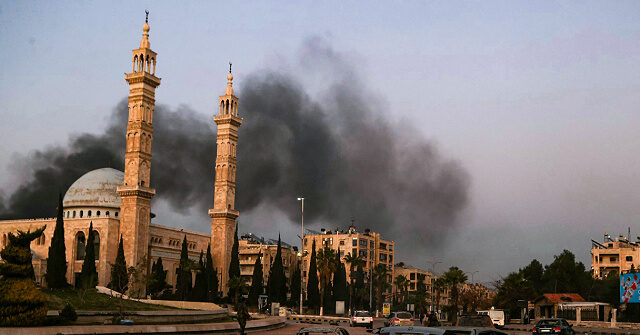In recent developments from northern Syria, both Kurdish forces and humanitarian organizations have raised alarms over Turkish-backed militias expanding their territorial control, posing a significant threat to Kurdish civilians and potentially engaging in acts of ethnic cleansing. This escalation comes in the wake of a military campaign launched by the Syrian National Army (SNA), a coalition of various militias supported by the Turkish government, targeting Kurdish-held areas. Concurrently, the jihadist group Hayat Tahrir al-Sham (HTS), linked to al-Qaeda, has initiated a siege around Aleppo, a critical city where the Syrian regime recently lost control. The situation highlights a confluence of strategic military interests and humanitarian crises that could exacerbate existing tensions in the region.
The SNA’s operations against Kurdish forces are not directly coordinated with HTS but are rather a concerted endeavor backed by the Turkish government to undermine Kurdish governance in northern Syria. The Kurdish-led Syrian Democratic Forces (SDF), comprising mainly of the People’s Protection Units (YPG) and their all-female partners in the YPJ, emerged as pivotal players in the fight against the Islamic State terror group. Despite their alliance with the U.S. during the anti-ISIS operations, Turkey classifies the SDF as a terrorist organization, equating it with the PKK, which is designated as a terrorist group by the United States. This designation underlies Turkey’s assertive stance in Syria as it seeks to combat what it perceives as a security threat emanating from Kurdish militias.
Reports from the Syrian Observatory for Human Rights (SOHR) have documented serious humanitarian violations attributed to pro-Turkish militias, notably in the Aleppo governate, where ongoing conflicts have led to severe civilian suffering. The SOHR has asserted that these armed factions are engaged in what can be characterized as ethnic cleansing, targeting Kurdish populations and committing humanitarian crimes, including mass arrests and killings. In one tragic incident, at least eleven individuals were reported killed in al-Shahabaa, highlighting a brutal attempt to exert control over areas traditionally inhabited by Kurds. Furthermore, the ongoing siege of civilians in the Al-Shuhabaa region has resulted in communication blackouts and severe reductions in essential resources such as water and electricity.
Dramatic accounts from the SDF indicate that the situation is spiraling toward humanitarian catastrophe, with reports suggesting the forced disappearance of 15,000 individuals amidst the chaos. These developments have intensified fears regarding the fate of approximately 100,000 displaced persons who are fleeing the violent clashes between SDF and SNA forces. The SDF also condemned the pro-Turkish militias for conducting large-scale kidnappings of civilians attempting to evacuate the area, asserting that these actions are tantamount to enslavement aimed at further isolating and controlling Kurdish communities. The intention of pro-Turkish factions appears directed not only at seizing land but also at inflicting psychological and physical harm on the Kurdish populace.
As these tensions mount and the specter of violence looms large, there are signs of escalating activities by Islamic State remnants. The SDF has noted an uptick in attacks believed to be carried out by ISIS members, taking advantage of the chaos generated by Turkish-backed incursions. Reports confirm attacks not only in Aleppo but also in other critical regions, such as Homs and Deir ez-Zor, raising alarms about the resurgence of ISIS amid deteriorating stability. This complex layer of conflict underscores the difficulty of isolating local alliances and the dangerous power vacuums that are being created in the wake of prolonged military engagements by various factions.
The Turkish government has justified its military interventions in northern Syria as necessary actions to counteract terrorism and safeguard its national interests. President Recep Tayyip Erdogan maintains a consistent narrative that portrays the SDF as a clear and present danger to Turkish sovereignty. His administration has reiterated its commitment to preventing what it views as threats posed by the PKK/YPG militants, often enlisting military rhetoric to bolster domestic support for Ankara’s aggressive policies in Syria. This narrative is echoed in statements from Turkey’s Defense Ministry, which insists on the seriousness of the perceived threats against their territorial integrity and expresses determination to maintain stability in the region.
In conclusion, the growing tensions in northern Syria underscore a multifaceted crisis characterized by military aggression, ethnic strife, and humanitarian degradation. Even as the conflict dynamics evolve, the implications of Turkish-backed military operations on Kurdish civilian life and regional stability loom large. The stark realities of potential ethnic cleansing and humanitarian violations must be addressed urgently by international entities if there is to be any hope of mitigating the crises that continue to unfold and affect countless lives in the region. As the situation develops, a comprehensive understanding of both local aspirations and the broader geopolitical ramifications will be essential for mediating peace and fostering reconciliation in a war-torn landscape.

